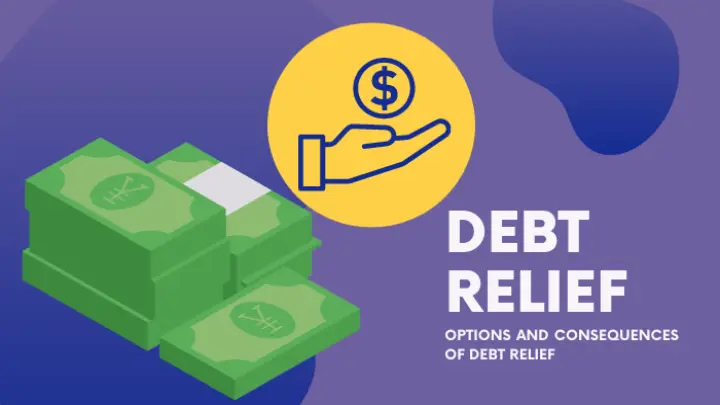Many people who find themselves in debt are struggling to make ends meet. They may be behind on their mortgage, credit card, or other loan payments. In some cases, they may have defaulted on their loans altogether. Facing this type of financial hardship can be overwhelming, and it can be difficult to know what to do.
One option that some people consider is debt solutions. This can take many different forms, but essentially it involves getting help from a third party to pay off your debts. Let’s take a look at the options and consequences of debt relief.
There are a few different ways that you can go about getting debt free. You can work with a credit counseling agency or a debt settlement company but also check out these debt consolidation tips for Floridians. You can also try to negotiate with your creditors directly.
Table of Contents
Relief Options:
1) Credit Counseling:
Credit counseling involves working with a credit counseling agency to create a debt management plan. Under this plan, you will make one monthly payment to the credit counseling agency, which will then distribute the payments to your creditors.
2) Debt Settlement:
Debt settlement is another option for getting out of debt. With debt settlement, you negotiate with your creditors to try to agree on a payment that is less than the full amount that you owe.
3) Bankruptcy:
Bankruptcy is a legal process that allows people to eliminate their debts or repay them under the protection of the bankruptcy court. There are two main types of consumer bankruptcy: Chapter 7 bankruptcy and Chapter 13 bankruptcy.
Chapter 7 bankruptcy involves liquidating your assets to repay your debts.
This type of bankruptcy can be beneficial because it can allow you to get out of debt quickly. However, it can also have some negative consequences. For example, you may have to give up some of your assets, and bankruptcy will stay on your credit report for seven to 10 years.
Chapter 13 bankruptcy involves creating a repayment plan to repay your debts over three to five years. This type of bankruptcy can be beneficial because it can allow you to keep your assets. However, it can also have some negative consequences. For example, you will likely have to pay all of your debts in full, and bankruptcy will stay on your credit report for seven to 10 years.
Before you decide to pursue any type of debt restructuring or relief, it is important that you understand the potential consequences. Some options may help you get out of debt quickly, but they could also have long-term negative repercussions.
Consequences to Consider:
One consequence of choosing to address your debt is that your credit score could suffer. If you work with a credit counseling agency, your credit report will show that you have enrolled in a debt management program. This could stay on your credit report for up to seven years, and it could make it difficult for you to get approved for new lines of credit.
If you choose debt settlement, your creditors may agree to forgive a portion of your debt. However, this will also be reported to the credit bureaus, and it could have a negative impact on your credit score. In some cases, settling your debts could also lead to tax consequences.
Another potential consequence of choosing to settle your debt is that it could make it more difficult for you to get approved for new lines of credit in the future. If you enroll in a debt management program, your creditors will know that you are having difficulty making your monthly payments. This could lead them to believe that you are a higher-risk borrower, and they may be less likely to approve you for new credit products.
In Closing
No matter what option you choose, it is important to remember that debt settlement is not a free lunch. There are potential consequences that you should be aware of before you make a decision. Be sure to weigh all of your options and consequences of debt relief carefully before you decide which path is right for you.

